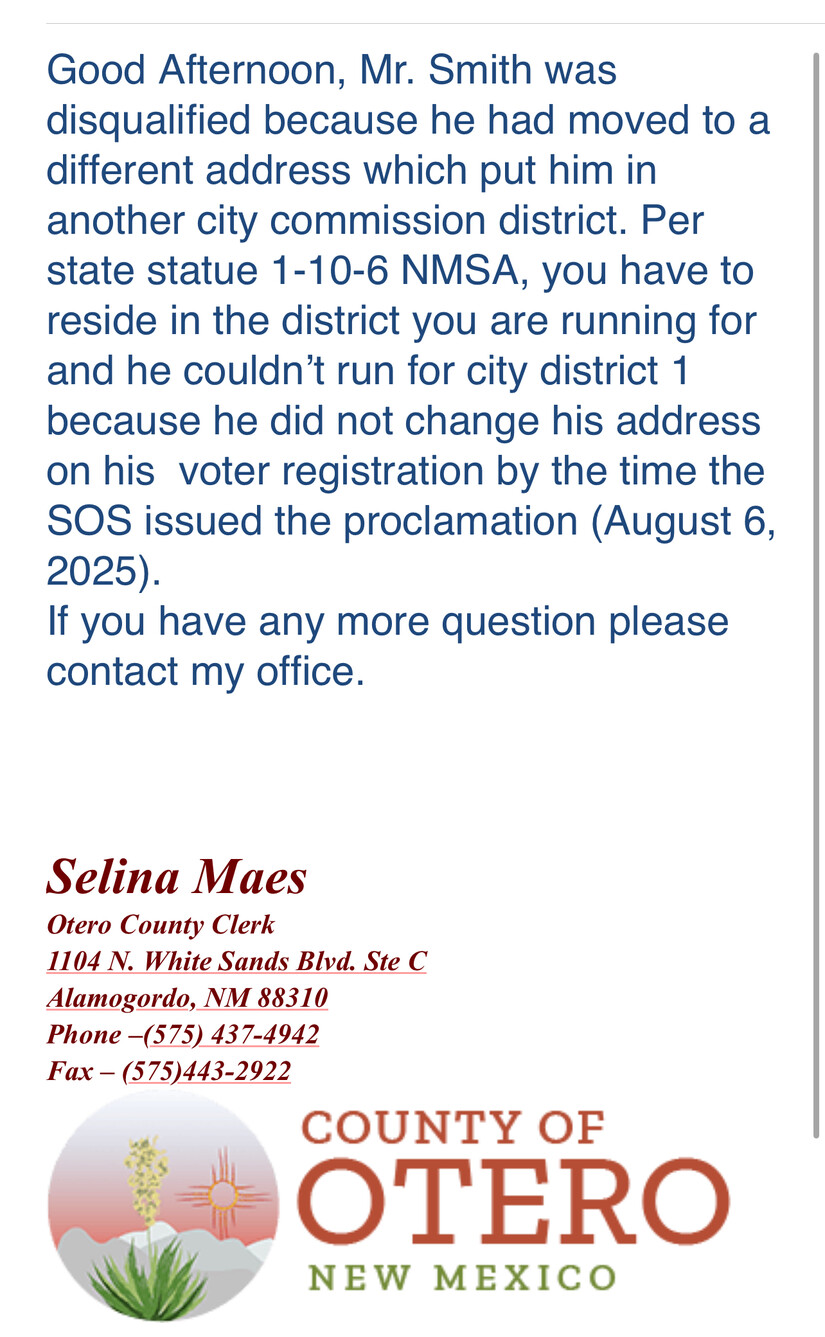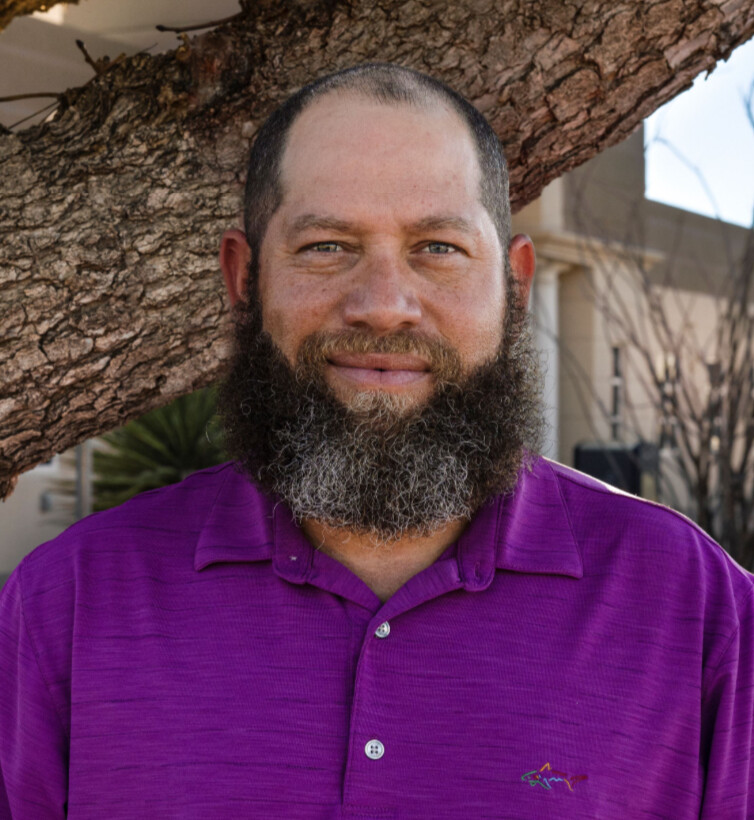Image


In a surprising development that has raised eyebrows among some citizens, city commission candidate Andrew Smith has been disqualified from running for the District 2 seat in Alamogordo.
The reason for his disqualification is now cleared, prompted by 2nd Life Media filing an Inspection of Public Records Act (IPRA) request with the Otero County Clerk’s Office seeking clarification. The disqualification was perfectly legal per the Clerks clarification.
According to preliminary information received by 2nd Life Media, Smith’s candidacy was initially considered for one district then upon advice from the county related to his address he committed to running in another district. His candidacy paperwork was accepted by the clerk’s office. However, the registration was later rejected—allegedly at the direction of the county assessor’s office—due to questions surrounding his residential address.
Sources suggested Smith has long resided within Alamogordo city limits, owns property, and pays local taxes. Yet, he now finds himself barred from registering in any city commission district as a candidate. “This feels like a bureaucratic Catch-22,” said one concerned resident. “How can someone live in Alamogordo and not be eligible to run for office in any district? How can officials not know what district his address falls into?" This was false.

THE FACTS: After speaking with the county clerk the mystery of disqualification was resolved. The individual must reside in the district on the date the resolution calling for election is passed into an ordinance. The reality is he initially filed while living at 701 Dewey Lane and then relocated to 1701 placing him in a different district from the date of filing from the date the resolution passed disqualifying him from office. No conspiracy no issue, all completely legal.
The situation has sparked broader questions about how residency is determined for municipal candidates in Alamogordo, New Mexico. Under state law (NMSA § 1-1-7), residency is defined by a person’s fixed habitation and intent to return verses the resolution date calling for an election.
However, recent cases across the state suggest inconsistencies in how these rules are applied in other counties. Otero County is in full compliance of the law.
In 2024, Attorney General candidate Jeremy Gay faced legal challenges over whether he had lived in New Mexico long enough to qualify. That same year, Senate candidate Cindy Nava remained on the ballot despite listing the wrong county of residence on her nominating petitions—an error deemed “clerical” by the courts. Meanwhile, Robert F. Kennedy Jr. was controversially placed on New Mexico’s general election ballot despite residency violations flagged in another state.
Rumors abound about a seated individual within local government not living in the address of their district yet the government entity turning a blind eye to the situation in violation of ethics rules.
These cases highlight a troubling pattern: while some candidates are disqualified over technicalities, others remain on ballots or in office despite clear violations. The lack of transparency and consistency undermines public trust in the electoral process.
The County Clerks decision was completely legal and she responded to our request for clarification.
If you or someone you know has experienced similar disqualification issues, or has information on government inaction related to residency or ethics violations contact our newsroom. Civic clarity begins with public accountability. Otero County did what the law requires.
The remaining candidates for District 2 Commissioner for the city of Alamogordo are Stephen Burnett against Evan Christopher Ross (Lambert).
 District 2 Commissioner Candidate for the city of Alamogordo - City Furnished Photo- AlamogordoTownNews.org
District 2 Commissioner Candidate for the city of Alamogordo - City Furnished Photo- AlamogordoTownNews.org Burnett (above) is competing against Evan Christopher Ross (Lambert) (below) founder of Community Power New Mexico (CPNM).
 Evan Christopher Ross (Lambert) founder of Community Power New Mexico (CPNM). Alamogordo City Commission Candidate District 2 - Candidate Furnished Photo AlamogordoTownNews.org
Evan Christopher Ross (Lambert) founder of Community Power New Mexico (CPNM). Alamogordo City Commission Candidate District 2 - Candidate Furnished Photo AlamogordoTownNews.org another (sadly rare) example of the press calling the authorities to account when their actions do not comply with their stated policies. thanks for standing up for the public right to know what is being done by government.